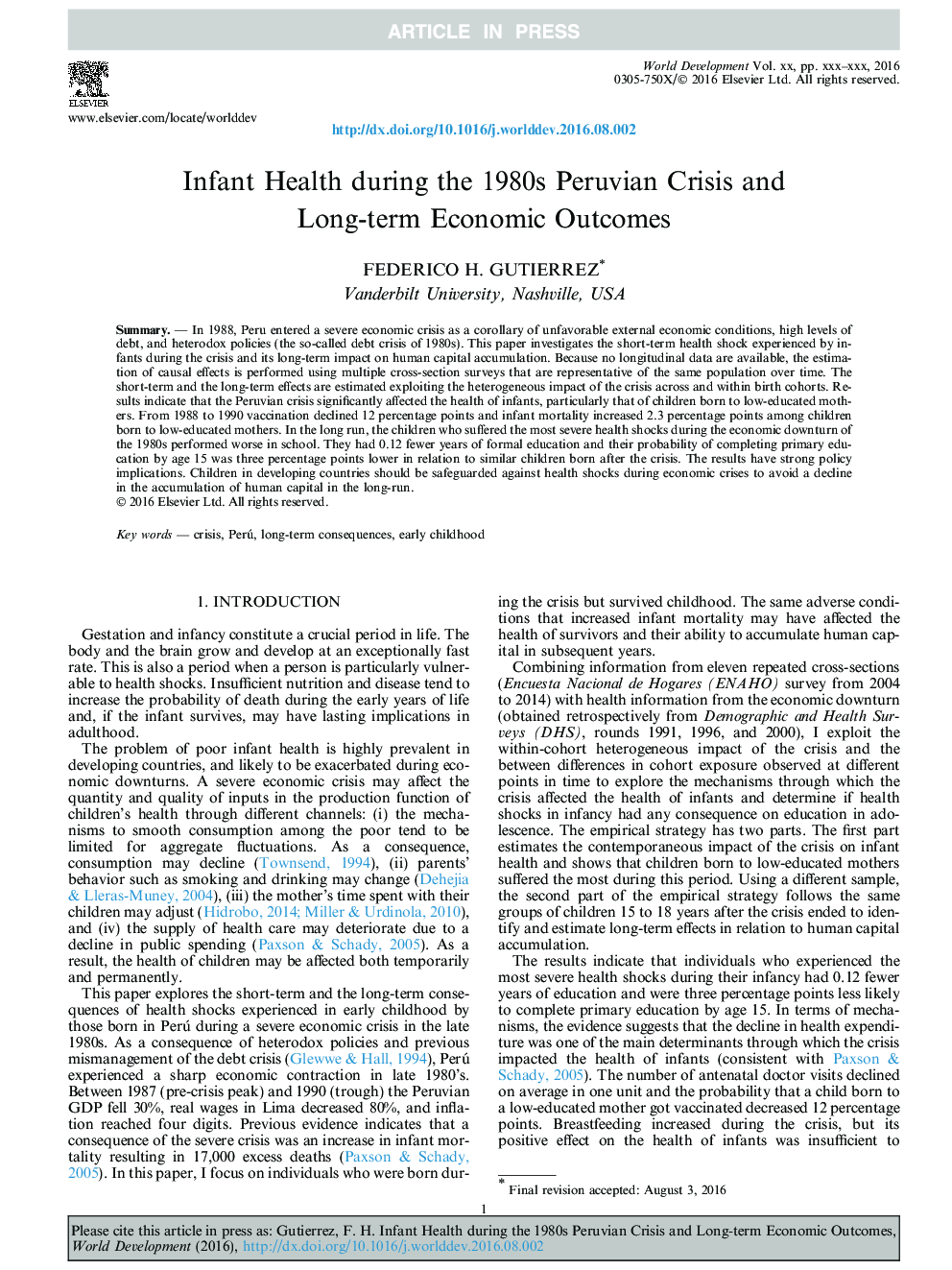| Article ID | Journal | Published Year | Pages | File Type |
|---|---|---|---|---|
| 5105344 | World Development | 2017 | 17 Pages |
Abstract
In 1988, Peru entered a severe economic crisis as a corollary of unfavorable external economic conditions, high levels of debt, and heterodox policies (the so-called debt crisis of 1980s). This paper investigates the short-term health shock experienced by infants during the crisis and its long-term impact on human capital accumulation. Because no longitudinal data are available, the estimation of causal effects is performed using multiple cross-section surveys that are representative of the same population over time. The short-term and the long-term effects are estimated exploiting the heterogeneous impact of the crisis across and within birth cohorts. Results indicate that the Peruvian crisis significantly affected the health of infants, particularly that of children born to low-educated mothers. From 1988 to 1990 vaccination declined 12 percentage points and infant mortality increased 2.3 percentage points among children born to low-educated mothers. In the long run, the children who suffered the most severe health shocks during the economic downturn of the 1980s performed worse in school. They had 0.12 fewer years of formal education and their probability of completing primary education by age 15 was three percentage points lower in relation to similar children born after the crisis. The results have strong policy implications. Children in developing countries should be safeguarded against health shocks during economic crises to avoid a decline in the accumulation of human capital in the long-run.
Related Topics
Social Sciences and Humanities
Economics, Econometrics and Finance
Economics and Econometrics
Authors
Federico H. Gutierrez,
